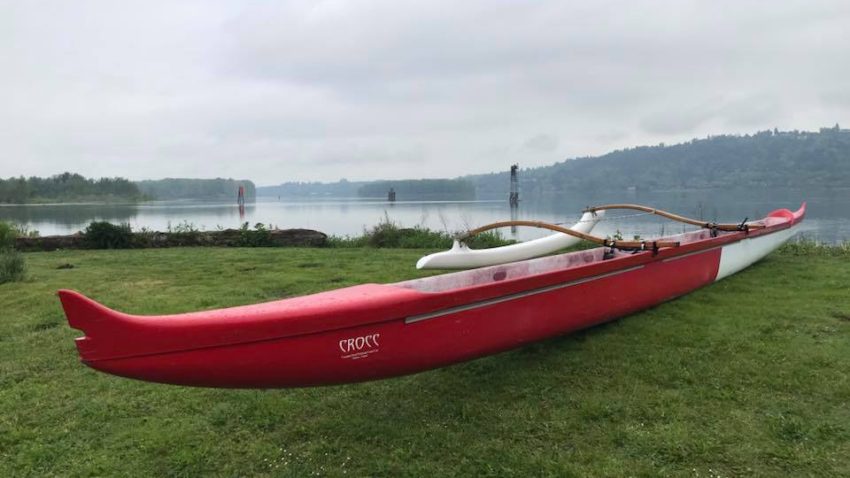The outrigger canoe is a type of canoe featuring one or more lateral support floats known as ama, in Hawaiian, which are fastened to one or both sides of the main hull. Our waʻa are part of our ohana (family). They each are considered to be a person within our club. The canoe is a very important part of each crew as they carry us across the water.
We show our utmost respect by following these simple rules at all times:
- Do not step over the canoe at any times, walk around the canoe. Stepping over a canoe is a sign of disrespect and brings bad luck.
- Refer to the canoe parts by their Hawaiian Names.
- Do not swear or argue in or around the canoe.
- Do not sit in the canoe while on dry land (except for instruction or demo’s).
- Before and after each race and after each practice give a cheer or chant in or around the canoe. We put our hands on the canoe while chanting. This returns calm and good mana energy back into the waʻa.
- When boats are on dry land, always face the nose of the canoe towards water. Facing the Manu/Pikaʻo (back of the canoe) is a sign of disrespect and brings bad luck to the canoe/ club/ and participants.
- Apologize to the canoe should you forget the rules.
History of our Waʻa:
Here is how CROCC’s waʻa became part of our club.
Iwalani:

A hand crafted wood and fiberglass lay-up Hawai’ian Classic canoe built in the late 1980’s.
WeirdEddy:

Known as an International Polynesian Canoe Federation (IPCF) canoe.
Pō Anuenue:
A Force 5 type canoe, Pō Anuenue was originally purchased for CROCC and then sold to Seattle Outrigger Canoe Club (SOCC). In 2010, CROCC bought her and brought her back to her Ohana. Welcome home Pō Anuenue!
Outrigger Canoe Racing
Outrigger canoe racing has become a popular canoeing sport, with numerous clubs located around the world. Outrigger Canoe Racing is the State sport of Hawaii and an interscholastic high school sport. In Hawaii, entire families participate in summer regattas with age groups from keiki (children as young as 6 with an adult steersperson) and age 12 through age 60+.
Resources:
- Hawaiian Outrigger Canoe Voyaging Society
- Polynesian Voyaging Society – Learning Center
- The Outrigger, A short bio documentary about outrigger canoeing, featuring athlete John Skorstad and the Dana Outrigger Club.

